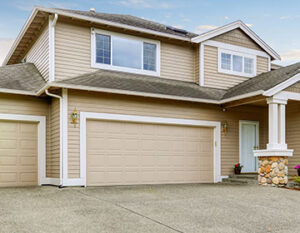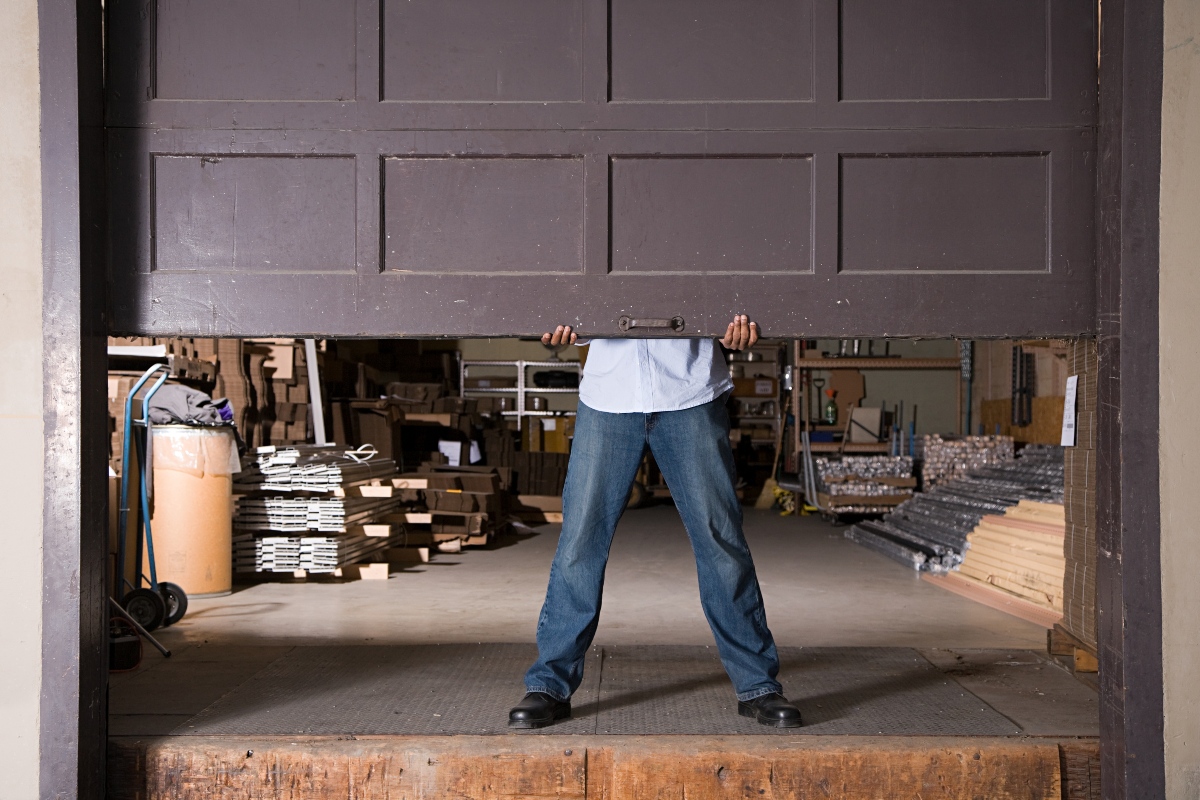
The Truth About Garage Door Noises and What They Really Mean
 Have you ever pulled into your driveway only to hear loud or strange garage door noises coming from your door? You’re not alone. Many homeowners experience unusual sounds during opening and closing and often ignore them—until it’s too late. These garage door noises can signal minor problems or major mechanical failures in the making. Learning what these sounds mean can save you money, protect your home, and extend the life of your garage system. Whether you’re hearing grinding, squeaking, or rattling, it’s crucial to understand the source. Ignoring garage door noises can turn a simple fix into a costly garage door repair.
Have you ever pulled into your driveway only to hear loud or strange garage door noises coming from your door? You’re not alone. Many homeowners experience unusual sounds during opening and closing and often ignore them—until it’s too late. These garage door noises can signal minor problems or major mechanical failures in the making. Learning what these sounds mean can save you money, protect your home, and extend the life of your garage system. Whether you’re hearing grinding, squeaking, or rattling, it’s crucial to understand the source. Ignoring garage door noises can turn a simple fix into a costly garage door repair.
Common Garage Door Noises You Shouldn’t Ignore
Not all garage door noises are the same—each sound points to a different issue. If your door groans or squeaks while moving, it may indicate dry rollers or a need for garage door lubrication. If you hear grinding, the motor or garage door opener could be under strain.
Another common sound is popping or banging, which usually means your garage door alignment is off. A rattling sound could suggest loose nuts or bolts in the track system. Clicking noises often point to electrical issues within the opener.
-
Squeaking: Worn rollers or lack of lubrication
-
Grinding: Motor strain or opener failure
-
Popping: Misaligned or warped door panels
-
Rattling: Loose track hardware
-
Banging: Tension problems with springs
-
Clicking: Electrical or circuit board malfunction
The Dangers Behind Noisy Garage Doors
Many homeowners write off garage door noises as “just old age,” but these sounds often point to deeper issues. One of the most dangerous is spring tension problems, which could cause the door to collapse suddenly. Ignoring these can pose risks to both property and personal safety.
Additionally, noisy garage door systems often mean increased wear and tear on other components. Rollers, openers, and track systems all suffer when small issues go unchecked. Over time, you’ll likely face full-system failure requiring emergency garage door repair.
Continual usage without identifying and addressing these noises can significantly shorten the lifespan of your residential garage doors. What seems like an irritating squeak today might become a safety hazard tomorrow.
Diagnosing Squeaky or Grinding Noises
A squeaky garage door typically means the rollers or hinges are dry. This is one of the most common garage door noises, and fortunately, it has a simple fix—proper lubrication. If grinding is the issue, your opener’s gear may be stripped or your door is too heavy for the motor.
Both sounds mean your system is working harder than it should. Regular garage door maintenance can identify these symptoms early. If left unchecked, this strain can damage the opener or derail the entire system, causing complete failure.
-
Apply silicone-based lubricant on rollers and hinges
-
Check opener gear and chain drive tension
-
Inspect metal tracks for dirt or warping
-
Examine roller condition—plastic ones wear faster
-
Clean debris that might be increasing friction
-
Call professionals if sound persists
When Garage Door Noises Mean It’s Time for Maintenance
Garage door noises are often the first signs your system needs routine maintenance. Clicking and rattling may not seem urgent, but they usually indicate alignment or electrical issues. These minor irritations grow into costly problems without timely service.
Scheduling regular inspections is crucial. A trained technician can spot deteriorating parts and fix them before they fail. Preventive garage door maintenance includes lubrication, tightening hardware, and checking for balance and alignment.
Every homeowner should view maintenance not just as optional, but essential. It’s the best way to avoid emergency garage door repair and ensure long-lasting performance.
Rollers and Tracks: A Source of Constant Noise
Worn-out or damaged rollers can cause several types of garage door noises. These rollers can crack, chip, or break entirely, resulting in a door that clunks and shudders on the way up or down. Steel rollers without bearings tend to be the loudest.
The tracks themselves may also be a culprit. Bent or misaligned tracks cause scraping or thudding noises as the rollers catch against them. Keeping tracks clean and aligned ensures smooth operation and helps reduce garage system issues.
Neglecting roller and track maintenance only leads to more damage down the line. Replacing or upgrading your rollers can drastically improve both function and noise levels.
-
Replace cracked or worn rollers
-
Upgrade to nylon rollers for quieter movement
-
Ensure tracks are aligned and free of dents
-
Clean and remove debris from track surfaces
-
Lubricate both rollers and track sides
-
Inspect roller stems for corrosion
Misalignment and Spring Problems You Can Hear
Your garage door’s balance depends on correct spring tension and cable support. If your door sounds like it’s struggling or slamming, it might be a garage door alignment issue. Misaligned doors tend to make sharp thuds or pop noises when moving.
If your springs are damaged or out of balance, you’ll hear loud bangs or squeaks. Tension problems are not only loud but dangerous. Attempting to adjust them yourself is highly discouraged and can result in injury.
Professionals use specific tools to safely adjust springs and ensure optimal performance. If garage door noises point to spring problems, call an expert immediately.
The Role of the Garage Door Opener in Noise
Many homeowners blame the door itself when the real problem lies with the garage door opener. If your opener hums loudly, it could mean the motor is working too hard due to improper calibration. Chain-driven openers are also noisier than belt-driven systems.
opener hums loudly, it could mean the motor is working too hard due to improper calibration. Chain-driven openers are also noisier than belt-driven systems.
A malfunctioning opener may click or buzz without operating the door, indicating a problem with the logic board or drive. Regular servicing can prevent expensive replacements and reduce garage door noises at the source.
Modern openers are designed for quiet operation—so if yours isn’t, it may be time for an upgrade.
-
Belt-driven openers run much quieter
-
Keep chains and belts properly tensioned
-
Lubricate drive system components
-
Check wall unit and remote signals
-
Inspect power supply and circuit board
-
Replace outdated opener models
When to Call a Professional for Noises
While some garage door noises can be fixed with simple lubrication or tightening, others require a professional. If your door is unbalanced, grinding, or slamming shut, those are not DIY issues. Continuing to operate the door without resolving these can be dangerous.
A trained technician can accurately diagnose whether the issue lies in the rollers, opener, springs, or track system. This saves time, prevents injury, and protects your home from further damage.
Don’t gamble with your safety. Addressing garage door noises early can help you avoid larger, costlier repairs in the future.
Keep Your Door Quiet and Safe with Preventive Care
The key to a quiet, smoothly functioning garage door lies in regular upkeep. Ignoring garage door noises will always lead to bigger problems down the line. Instead, take proactive steps like regular inspections and maintenance.
This means lubricating moving parts, replacing worn-out components, and upgrading your opener when needed. Most importantly, know when it’s time to call a professional. An experienced technician can spot small issues before they turn into major garage door repair needs.
With the right care, you can extend the life of your door, reduce noise, and keep your home secure.
Contact Williams Garage Doors for Expert Garage Door Solutions
Are garage door noises keeping you up at night or causing concern? Don’t wait until it turns into a full-blown emergency. The expert team at Williams Garage Doors is here to help with fast, affordable, and professional service.
📞 Call us in Pennsylvania: 215-792-4424
📞 In New Jersey, dial: 856-606-2937
🌐 Visit our website: https://williams-garagedoors.com
📧 Or email us directly at: williamsgaragedoors1@gmail.com
Let us take the mystery out of your garage door noises and restore peace to your home today.



